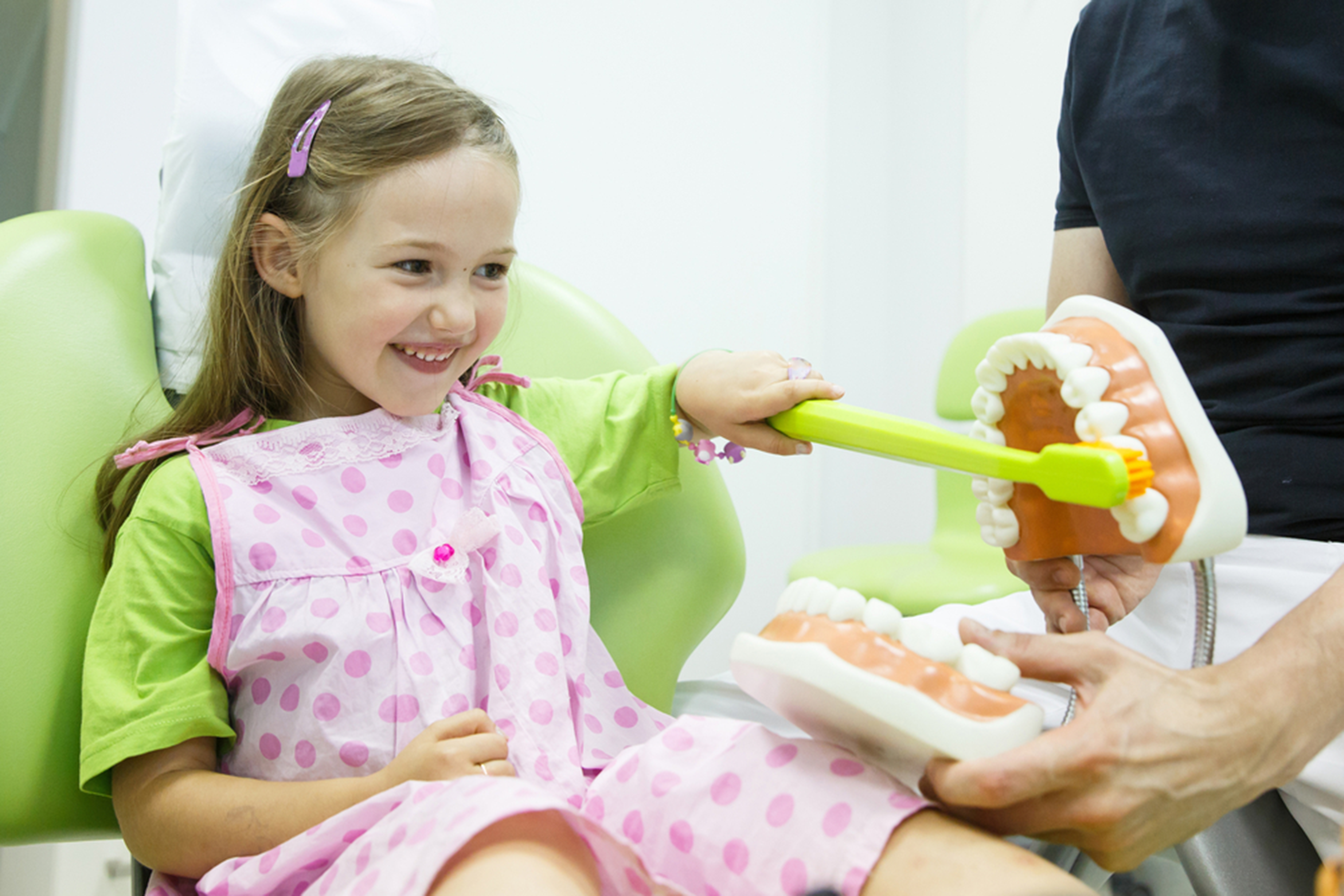Enamel, the outer layer of a tooth, can sustain damage as a result of dental decay. Cavities caused by tooth decay can result in holes being made in the molars. Visit a dentist near you if your child experiences any damage or signs of tooth decay. Taking preventative measures will help to avoid major damage and other oral health complications.
What Causes Tooth Decay in a Child?
Among other factors, bacteria are the primary cause of tooth decay. When sugar-containing food is left on the molars, the cavities can start to develop. These foods include bread, cereals, raisins, candies, cakes, milk soda, and fruit drinks. Acids are created from this food by bacteria that typically reside in the mouth. When bacteria, food particles, acid, and saliva come together to form plaque, it adheres to the teeth. Because the acids that the bacteria generate consume away the dental enamel over time, cavities eventually form.
Other Causes of Tooth Decay
Every kid has bacteria present in their mouth, which increases their potential for issues to manifest with their smile. More specifically, the points mentioned below can increase your child’s susceptibility to cavities:
- Decay-causing bacteria in high levels inside the mouth
- Consuming sugary and starchy foods
- limited or nonexistent fluoride content in the water source
- Poor dental hygiene
- Less saliva discharge
Symptoms of Tooth Decay in a Child
The following are common methods in which teeth get cavities and decay. But each child’s decay may be distinctive.
- In the affected areas, white spots appear on the teeth. These spots indicate that the tooth enamel is beginning to decay. They might cause early tooth sensitivity.
- The teeth show the development of a cavity that is faded brown in color.
- The development of cavities goes deeper and turns darker in shade to black
Children exhibit different signs of dental decay and cavities. There are times when cavities go unrecognized. Children occasionally are unaware of theirs until their dentist discovers it. But your child might experience:
- Pain and discomfort around the affected teeth
- Sensitiveness to hot or cold drinks and sweet food products.
How is Tooth Decay Diagnosed in a Child?
Our pediatric dentist near you usually diagnoses tooth decay based on:
- Medical and dental records of your child
- Dental checkup
- Dental impressions
How is Tooth Decay Treated in a Child?
The course of treatment will be determined by your child’s age, symptoms, and overall health. Additionally, it is also based on how serious the situation is:
The decayed portion of the tooth must typically be removed during treatment and replaced with a dental filling. Materials are inserted into teeth as fillings to repair decay-related damage. Restorations are another name for them. Different kinds of fillings include:
1. Direct restorations
For this procedure, a filling can be placed into a prepared hole in just one visit. They can be created from resin, acrylic, fine glass particles in silver or acids. They frequently have a natural tooth color.
2. Indirect restorations
This necessitates at least two visits. They consist of crowns, bridges, inlays, onlays, and veneers. These are made of composite materials, ceramics, basic metal alloys, or gold. Many substances can resemble dental enamel in appearance.
How to Prevent Tooth Decay
You can prevent tooth decay in your child by following the simple steps mentioned below.
- As soon as you notice tooth decay beginning to form, brush your child’s teeth thoroughly but gently. Fluoride toothpaste should be used twice daily to brush the teeth, lips, and gums. Alternatively, observe your kid brushing their teeth.
- The quantity of toothpaste used by children under the age of three is minimal—about the size of a grain to brush their teeth.
- Ensure that your kid eats a healthy diet. Limit your intake of sugary, sticky foods like chips, candy biscuits, and cake.
- Don’t share eating utensils with your kid to avoid spreading bacteria from your mouth to theirs. By no means use your saliva to clean your baby’s pacifier.
- Schedule routine dental checkups with our dentist in Livonia every six months
If your child experiences any sign of dental decay or any other dental health problems contact our pediatric dentist in Livonia. At Majestic Dentistry we offer quality dental care treatment to children who experience any minor to major dental health issues. Please reach out to our staff today if you have questions or you’re ready to book an appointment for your child.

